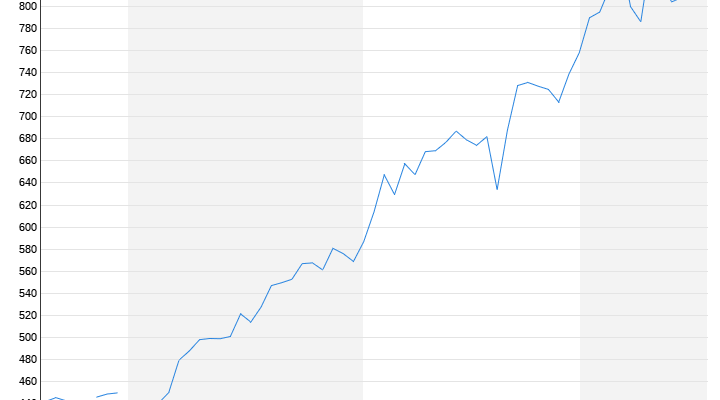It is four times as fast as its predecessor, even more powerful and at the same time more energy efficient: With its new super chip, Nvidia wants to finally leave the competition behind. But this dominance also brings challenges.
Analysts at Bank of America have already described chip manufacturer Nvidia’s annual developer conference in San José as “AI Woodstock”. At the event, CEO Jensen Huang unveiled the new flagship: the Blackwell B200 chip. Blackwell isn’t just a chip, though. “It’s the name of a platform,” says Huang. In order to establish itself as the most important provider of AI chips, the company is also expanding its software offering. Using “NIM,” companies can deploy a range of AI models optimized to run on Nvidia chips.
Nvidia sees the system as nothing less than the “drive of a new industrial revolution” through AI. Because: According to the company, this super chip is four times as fast as its predecessor and the processor is even more powerful. At the same time, the system is more energy efficient. “Our goal is to continuously reduce costs and energy consumption,” explained Huang.
The B200 is scheduled to be delivered to “the world’s leading AI companies” at the end of the year. Microsoft, Google and Amazon are already planning to use Blackwell. Nvidia’s new chip is named after the American mathematician David Blackwell. A price was initially not mentioned. The previous model usually costs more than $20,000 each. Industry experts assume that the B200 could be significantly more expensive. According to the US specialist portal Tom’s Hardware, a price of $100,000 is even conceivable.
“Blackwell offers enormous leaps in performance and will accelerate our ability to deliver cutting-edge AI models,” OpenAI boss Sam Altman was quoted as saying at the conference. Elon Musk, who founded the AI company X.AI just last year, also seems enthusiastic: “There is nothing better for AI at the moment than Nvidia hardware.”
The Nvidia technologies originally developed for graphics cards have long been proven in computing work for applications with artificial intelligence. Competitors such as Intel and AMD have so far been unable to catch up. “In the current, rapidly changing AI landscape, numerous companies are working hard to keep up with new innovative trends and remain differentiated and competitive,” says Tanjeff Schadt, partner at PwC Strategy & ntv.de. For many companies in the semiconductor industry, it is very difficult to keep pace or even catch up in a timely manner due to the enormous scalability and the setting of standards by dominant players such as Nvidia. This allows Nvidia’s business – and its stock market value – to grow rapidly. The chip manufacturer is now the third most valuable company in the world – after Microsoft and Apple.
Market could more than double
In pre-market trading, Nvidia shares fell by around two percent. Some traders point out that market participants have followed the principle of “buy the rumour, sell the news”. The market’s muted reaction could indicate that the hype surrounding Nvidia has “reached its peak,” the Financial Times quoted Daniel Newman, managing director of Futurum Group, as saying. “The market is very future-oriented.” He already sees a massive market share and the dominant position among cloud service providers. The development of competing chips goes hand in hand with the question: How long can Nvidia maintain its double-digit growth from quarter to quarter?” Newman continued. “There is really only one way for Nvidia: We have to see how big this market really is. “
The company’s revenue is heavily dependent on the few cloud computing giants. Companies like OpenAI have spent huge amounts of money on Nvidia chips in the past. Recently, Google, Amazon and Microsoft have tried to develop their own AI chips in order to be less dependent on Nvidia and to tie their customers more closely to their own systems. The challenge for the company is to make its technology attractive to even more companies in the future. This strategy is definitely worth it: After all, the market for AI chips is expected to more than double from $53 billion today to $119 billion by 2027.
